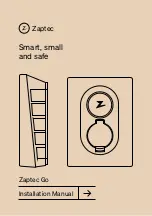
Page
113
It is important that the charging system be kept in good working order
because the ignition, starting and lighting systems depend on it. These
systems will be rendered inoperative if the battery is in an extremely
low state of charge. The electrolyte level in the battery must be
regularly checked and topped-up if necessary. Keep the battery
terminals clean and tight.
The correct fan belt tension is important. a slack belt will slip and
prevent the alternator from fully charging the battery.
Attention should also be given to the cleanliness and security of the
earth leads / braids.
The ignition warning light serves the dual purpose of reminding the
driver to switch off the ignition and acting as a no charge indicator.
With the ignition switched on the lamp should only be illuminated
when the engine is either not running, or is running at a very low
speed. As the engine speed increases the lamp should extinguish.
Failure to do so indicates a fault in the charging system.
The alternator is described in full in the following text but for details
of the other charging components see
General Electrics
page 121.
Alternator
Description
The alternator is a 12 pole 2 brush machine and is driven by a belt
from the crankshaft pulley. to ventilate the interior components a
multi bladed fan is fitted behind the drive pulley.
The brush gear is enclosed in a moulding screwed to the slip-ring end
bracket thus providing protection against adverse effects of dust and
moisture.
Voltage control is achieved by a model 14TR solid state regulator built
in to the slip-ring end bracket, replaceable if faulty. A normal type of
charge indicator (warning light) system is used with this alternator.
The warning light is connected in series with the field supply diodes
and is extinguished when the voltage generated in the diodes equals
the supply voltage from the battery.
The only attention that the alternator is likely to require is the
occasional checking of the brushes. remove the alternator end cover,
unscrew two 4BA bolts and lift the brush box clear from the slip-ring
moulding bracket. Check that they are free from oil or grease. If
necessary they can be cleaned with a petrol moistened cloth. Check
brush and springs for ease of movement in the holders. If the overall
length of the brush has worn to less than 7.62 mm (0.30 in) the
brushes and springs need to be renewed.
Wipe away any oil or dirt which may have collected around the slip-
ring end cover ventilation apertures. The main bearings are packed
with grease during manufacture so do not require attention.
Summary of Contents for Kitten Estate
Page 15: ...Page 15...
Page 17: ...Page 17...
Page 22: ...Page 22...
Page 26: ...Page 26...
Page 38: ...Page 38 Figure 4 Engine cylinder block exploded...
Page 54: ...Page 54...
Page 55: ...Page 55...
Page 65: ...Page 65...
Page 66: ...Page 66...
Page 75: ...Page 75...
Page 77: ...Page 77...
Page 90: ...Page 90...
Page 92: ...Page 92...
Page 97: ...Page 97...
Page 100: ...Page 100...
Page 101: ...Page 101...
Page 103: ...Page 103...
Page 108: ...Page 108...
Page 114: ...Page 114...
Page 116: ...Page 116...
Page 117: ...Page 117...
Page 118: ...Page 118...
Page 119: ...Page 119...
Page 120: ...Page 120...
Page 123: ...Page 123...
Page 124: ...Page 124...
Page 126: ...Page 126...
Page 130: ...Page 130...
Page 131: ...Page 131...
Page 133: ...Page 133...
















































